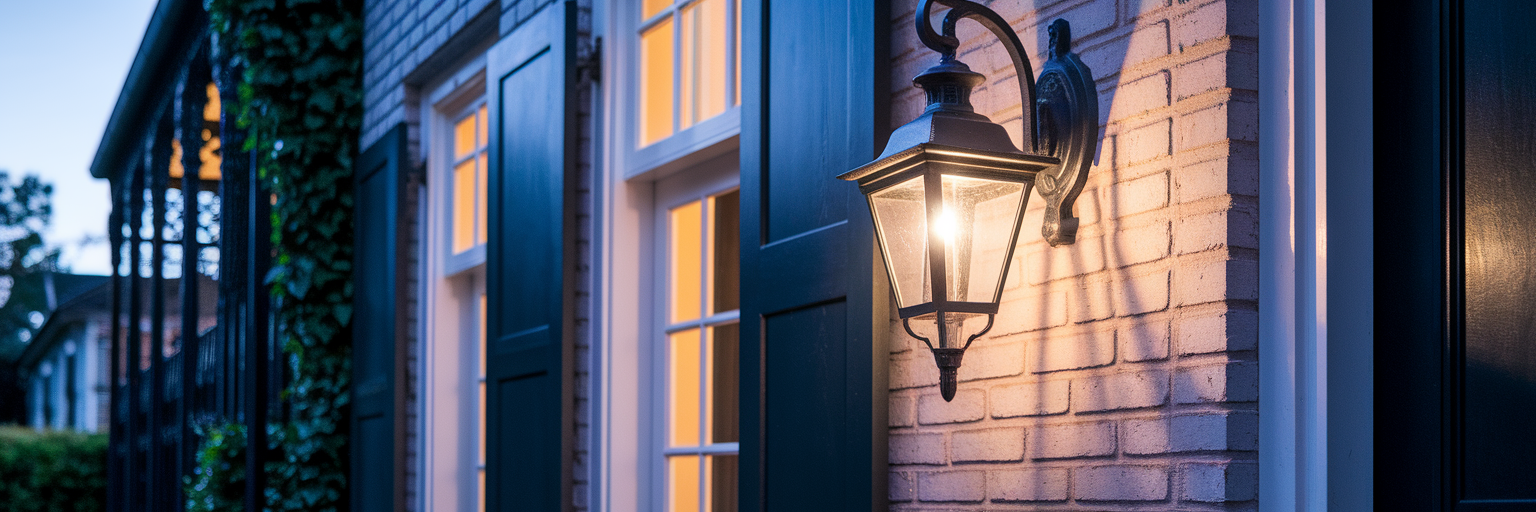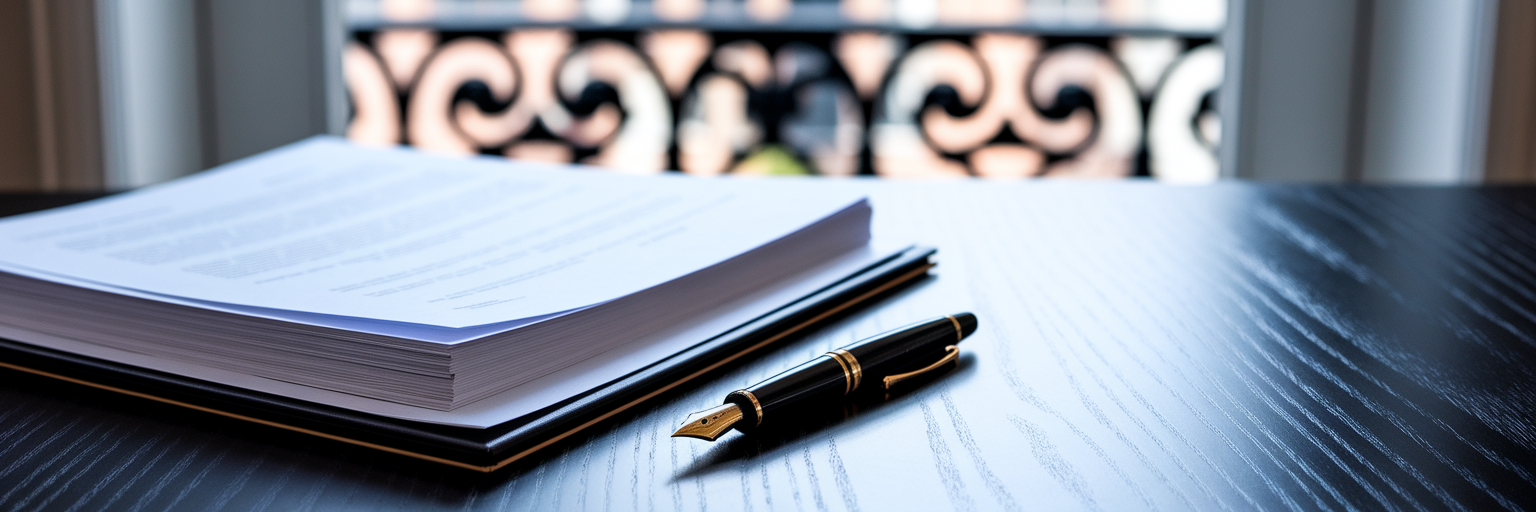A Practical Guide to Real Estate Closings in New Orleans

Setting the Stage for Your Property Transaction
Buying or selling property brings a unique blend of excitement and stress. In New Orleans, that feeling is amplified by a legal landscape unlike any other in the country. Louisiana operates under a civil law system, a direct inheritance from its French and Spanish past. This distinction is not just a historical footnote; it fundamentally shapes the entire closing process. Understanding this unique environment is the first step toward a successful transaction. It’s why having local expertise is not just helpful, it is absolutely essential for protecting your interests and ensuring every detail is handled correctly from the start.
Foundational Steps Before Closing Day
Long before you sit down at the closing table, there is critical homework to be done. Think of these steps as building a strong foundation for your transaction. First, securing financing pre-approval is non-negotiable. It shows sellers you are a serious buyer and clarifies your budget. Next comes a thorough title search. This investigation is designed to uncover any hidden issues like liens, ownership disputes, or unresolved claims that could jeopardize the sale. According to the Louisiana Land Title Association, a clean title is fundamental to a legal property transfer.
At the same time, you must meticulously review all property disclosures and inspection reports. We have all heard stories of buyers discovering problems after the fact. If an inspection reveals issues, any agreed upon repairs must be documented in writing within the purchase agreement. Diligence during the Louisiana property closing process prevents major headaches later. Navigating these steps requires careful attention to detail, and having a reliable partner like our team at JP Notary can provide the necessary guidance to keep everything on track.
Decoding Your Key Closing Documents
When people ask what to expect at closing Louisiana, the answer often revolves around a stack of paperwork. Understanding these documents demystifies the process. The first key document is the Closing Disclosure (CD). This is a final, itemized list of all your loan terms and closing costs. The Consumer Financial Protection Bureau, as detailed on their website, mandates that you receive this document at least three business days before closing to review it for accuracy. No one likes financial surprises on closing day.
The centerpiece of the transaction is the Act of Sale, also known as the deed. In Louisiana, this is the legal instrument that officially transfers ownership from the seller to the buyer. Other critical forms include the promissory note, which is your formal promise to repay the loan, and the mortgage agreement, which secures the property as collateral for that loan. Each document serves a distinct and vital purpose in making the transaction legally sound.
| Document Name | Primary Purpose | Key Item to Verify |
|---|---|---|
| Closing Disclosure (CD) | Provides a final, detailed breakdown of all loan terms and closing costs. | Ensure all figures match the Loan Estimate and there are no surprise fees. |
| Act of Sale (Deed) | The legal instrument that formally transfers property ownership from seller to buyer. | Verify the accuracy of the property's legal description and all names. |
| Promissory Note | A legal document where the borrower promises to repay the mortgage loan. | Confirm the loan amount, interest rate, and repayment schedule are correct. |
| Mortgage Agreement | Secures the property as collateral for the loan, giving the lender a claim. | Understand the terms regarding default, escrow, and property taxes. |
Note: This table summarizes the most common documents in a Louisiana real estate closing. Always review each document carefully with your realtor or notary.
The Notary's Central Role in Louisiana Closings
In most states, a notary simply witnesses signatures. Here in Louisiana, their role is far more significant. Our civil law tradition grants notaries expanded responsibilities, often including drafting the Act of Sale itself. As the Louisiana Notary Association highlights, their function is integral to the validity of the entire transaction. The notary’s primary duty is to authenticate all signatures, ensuring the documents are legally binding and protecting all parties from potential fraud. This is why selecting a competent New Orleans notary for house closing is so important.
A knowledgeable professional does more than just stamp papers; they ensure full compliance with state law and can explain complex legal terms in plain language. This expertise provides invaluable peace of mind. At JP Notary, we bring this essential service directly to you. Our mobile notarization means we can meet you at your home, office, or another convenient location, making the process as smooth and stress free as possible.
Avoiding Common Closing Day Pitfalls
A smooth closing day is the result of good preparation. The National Association of Realtors often points out that simple communication breakdowns are a leading cause of delays. Here are a few practical steps to avoid common issues:
- Prevent Document Discrepancies: Stay in close contact with your lender and realtor in the week leading up to closing. Confirm all figures on the Closing Disclosure are final and correct.
- Address Property Issues Early: Schedule your final walkthrough 24 to 48 hours before signing. This gives you enough time to address any last minute problems without derailing the appointment.
- Avoid Funding Delays: Confirm the exact amount needed for closing costs and the wire transfer instructions with your notary or title company at least two days in advance.
- Plan for Logistics: If your schedule is tight or travel is a challenge, arranging for a mobile notary for real estate closing can eliminate a major source of stress and keep the transaction on schedule.
Finalizing the Transaction and Post-Closing Steps
The closing appointment is the final step where you review and sign all documents under the guidance of the notary. Once everything is signed, the transaction is nearly complete. The notary then records the Act of Sale with the parish Clerk of Court, making the transfer of ownership official public record. At this point, funds are disbursed to the seller, and you officially receive the keys to your new property.
Having professional guidance ensures this final stage of your real estate closing New Orleans is seamless. For a transaction handled with expertise and convenience in New Orleans or Jefferson Parish, a mobile notary is an invaluable partner. To ensure your closing is managed correctly, contact JP Notary at 504-513-7333 or visit us online. For our Spanish speaking clients, we offer dedicated services to assist you. Read what our clients say about our 5-star notary services.
Need Professional Notary Services?
Contact JP Notary for reliable, professional notary services in New Orleans.


